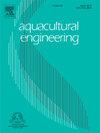AquaChat:一个llm引导的ROV框架,用于水产养殖网栏的自适应检测
IF 4.3
2区 农林科学
Q2 AGRICULTURAL ENGINEERING
引用次数: 0
摘要
对水产养殖网笼的检查对于维持鱼类养殖系统的结构完整性、生物安全性和运营效率至关重要。传统的检测方法依赖于预编程任务或手动控制,对动态水下条件和用户特定需求的适应性有限。在这项研究中,我们提出了AquaChat,这是一种新型的远程操作车辆(ROV)框架,它集成了大型语言模型(llm),用于指令驱动,智能和自适应的网络笔检查。该系统具有多层结构:(1)高级规划层,使用LLM解释自然语言用户命令以生成符号任务计划;(2)将计划转换为ROV控制序列的中级任务管理器;(3)底层运动控制层,精确执行导航和检测任务。实时反馈和事件触发的重新规划增强了具有挑战性的水产养殖环境中的鲁棒性。该框架通过模拟和受控水生环境的实验验证,以水产养殖网箱为代表。结果表明,改进的任务灵活性,检查准确性和操作效率。AquaChat展示了将基于语言的人工智能与海洋机器人相结合的潜力,为可持续水产养殖操作提供智能、用户互动的检查系统。本文章由计算机程序翻译,如有差异,请以英文原文为准。
AquaChat: An LLM-guided ROV framework for adaptive inspection of aquaculture net pens
Inspection of aquaculture net pens is essential for maintaining the structural integrity, biosecurity, and operational efficiency of fish farming systems. Traditional inspection approaches rely on pre-programmed missions or manual control, offering limited adaptability to dynamic underwater conditions and user-specific demands. In this study, we propose AquaChat, a novel Remotely Operated Vehicle (ROV) framework that integrates Large Language Models (LLMs) for instruction-driven, intelligent and adaptive net pen inspection. The system features a multi-layered architecture: (1) a high-level planning layer that interprets natural language user commands using an LLM to generate symbolic task plans; (2) a mid-level task manager that translates plans into ROV control sequences; and (3) a low-level motion control layer that executes navigation and inspection tasks with precision. Real-time feedback and event-triggered replanning enhance robustness in challenging aquaculture environments. The framework is validated through experiments in both simulated and controlled aquatic environments representative of aquaculture net pens. Results demonstrate improved task flexibility, inspection accuracy, and operational efficiency. AquaChat illustrates the potential of integrating language-based AI with marine robotics to enable intelligent, user-interactive inspection systems for sustainable aquaculture operations.
求助全文
通过发布文献求助,成功后即可免费获取论文全文。
去求助
来源期刊

Aquacultural Engineering
农林科学-农业工程
CiteScore
8.60
自引率
10.00%
发文量
63
审稿时长
>24 weeks
期刊介绍:
Aquacultural Engineering is concerned with the design and development of effective aquacultural systems for marine and freshwater facilities. The journal aims to apply the knowledge gained from basic research which potentially can be translated into commercial operations.
Problems of scale-up and application of research data involve many parameters, both physical and biological, making it difficult to anticipate the interaction between the unit processes and the cultured animals. Aquacultural Engineering aims to develop this bioengineering interface for aquaculture and welcomes contributions in the following areas:
– Engineering and design of aquaculture facilities
– Engineering-based research studies
– Construction experience and techniques
– In-service experience, commissioning, operation
– Materials selection and their uses
– Quantification of biological data and constraints
 求助内容:
求助内容: 应助结果提醒方式:
应助结果提醒方式:


